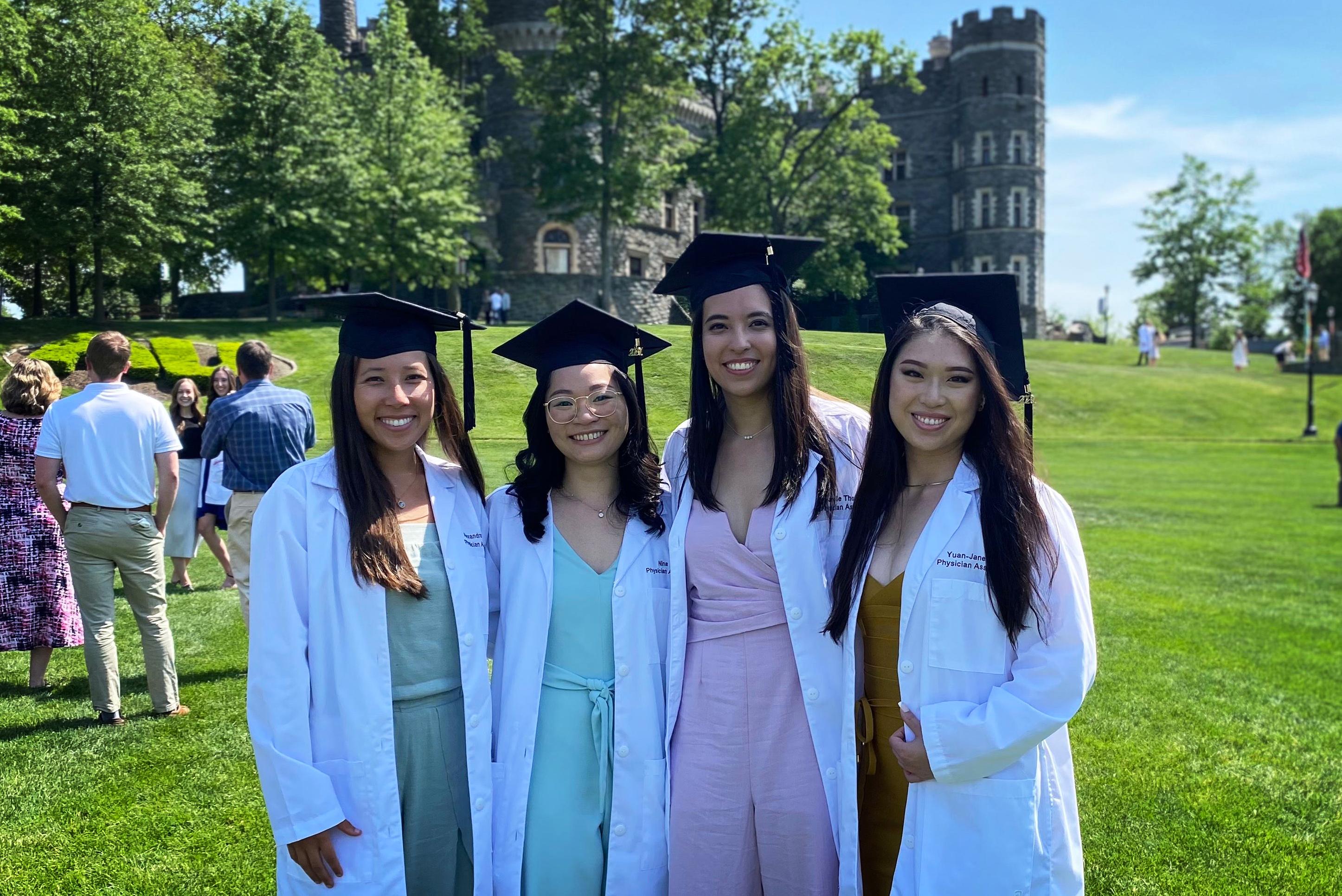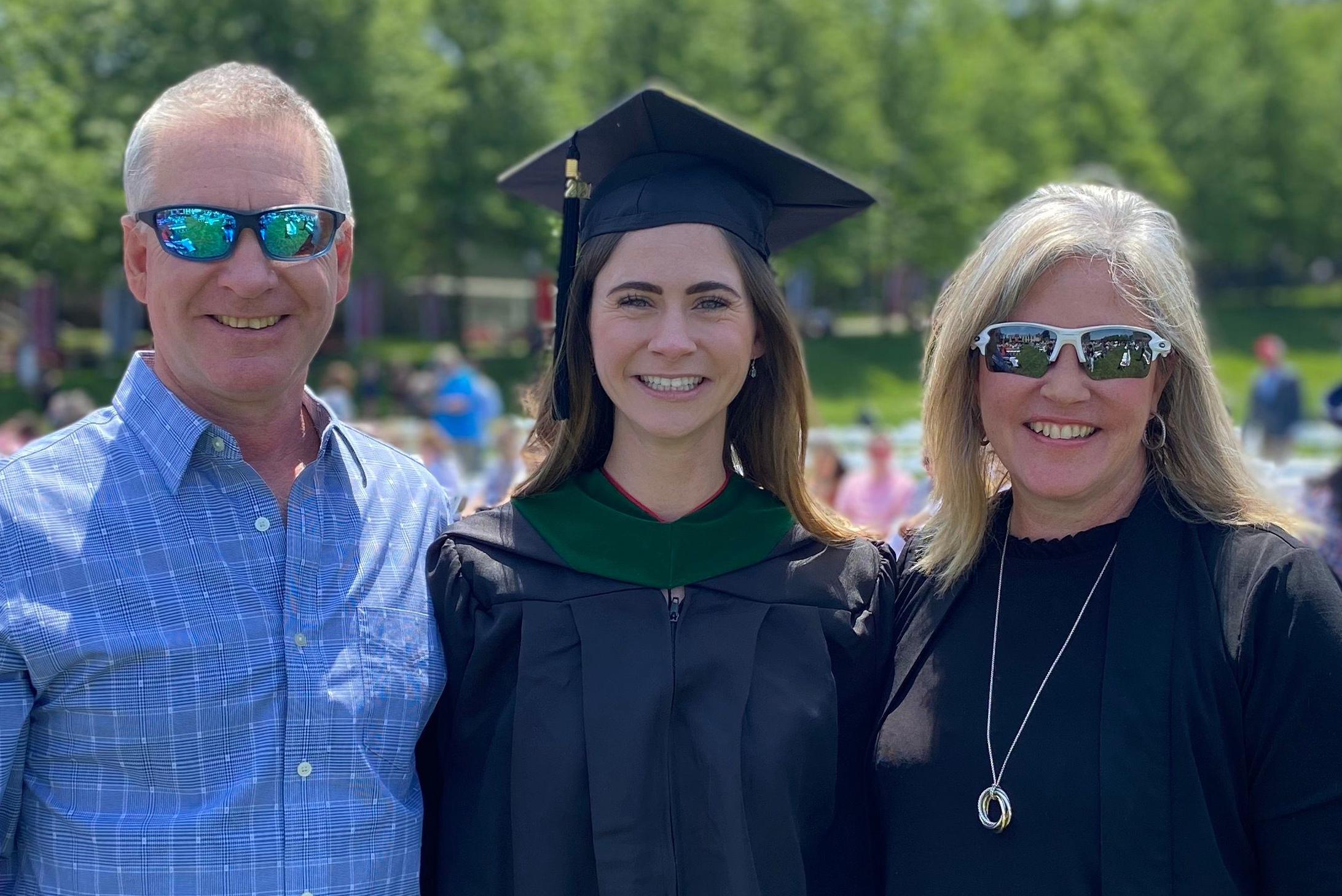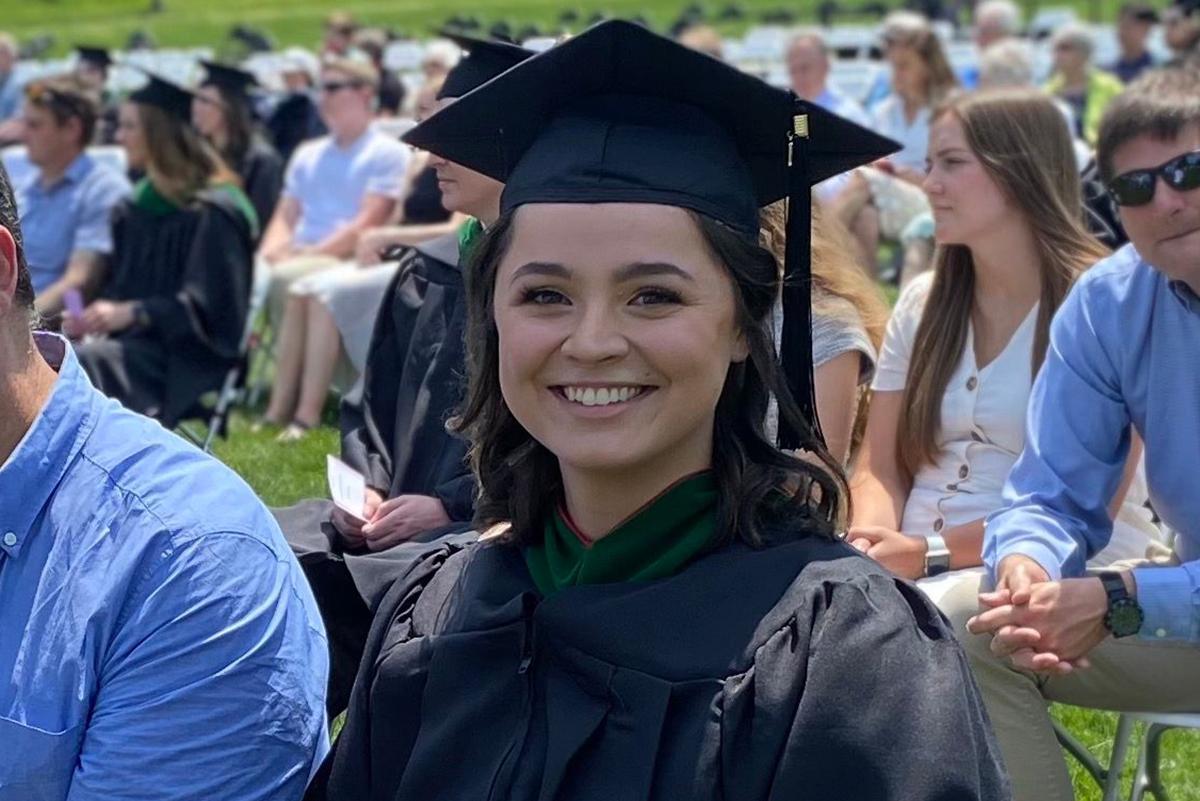Physician Assistant Class Graduates with Skills Needed in Today’s World

The Department of Medical Science faculty cheered on the Class of 2021 during an extraordinary celebration at the White Coat and Commencement ceremonies on May 20. In total, 99 students graduated from the program in 2021 during a year of postponed clinical rotations and online learning.
According to the Accreditation Review Commission on Education for the Physician Assistant, supervised clinical practice experiences must enable all students to meet the program’s learning outcomes. The Arcadia University Physician Assistant Program learning outcomes are associated with a broad range of patient encounters and health conditions that span the lifespan and occur in various settings. The second phase of training includes supervised clinical experiences in family medicine, internal medicine, surgery, emergency medicine, pediatrics, behavioral medicine, and women’s health.
In addition to the seven required clinical experiences, the Physician Assistant Program also requires students to complete three elective areas of study and one additional core rotation in a core area. Students usually begin rotations in June following their didactic year of the program in order to complete all 11 rotations. However, the Class of 2021’s clinical rotations coincided with the COVID pandemic.

Megan Mellon ’21MMS with her family at Commencement on May 20.
“This whole year, it was interesting to be a student in medicine,” said Glenside Constituent Chapter Student Representative Megan Mellon ’21MMS. “What do you do as a student in the healthcare profession during a global pandemic? It was about making the most of the time you had at a clinical site and getting the most experiences because we didn’t know what was going to happen if there were spikes again.”
In March 2020, clinical rotations were suspended due to COVID. Faculty scrambled to create virtual rotations and supplemental modules that could meet the learning outcomes of the in-person clinical rotations.
“We moved the core elective to the front so the students didn’t lose anything,” said Michael Huber, assistant professor of Medical Science. “Last year, I remember sitting there thinking ‘Oh my God, we’re going to be at least six months delayed with students,’ because there were no sites open and we didn’t know when things would reopen. It was pretty amazing in the end that we were able to graduate 90 percent of the class by the end of May.”
The program developed two virtual rotations for students to complete last summer that counted toward their elective rotations in areas that they were deficient in the didactic year. These virtual rotations incorporated independent study, online group sessions, patient simulation and interactive technology tools, and additional reading materials and resources crafted by faculty to support their education.
“These virtual rotations acted as a review of didactic content and provided a period of preparation and transition to the clinical phase of the program” said Huber. “It helped build their confidence for the onsite clinical rotations and patient care experiences that were to follow.”
Faculty worked around the clock to ensure this program was an academically robust supplement to the in-person clinical rotations and incorporated some of the technical aspects learned in rotations. With no breaks in the program, faculty had to continue to develop online curriculum and experiences while students continued in the program. Huber noted that faculty often expressed that they “were building the plane while flying it.”
“The virtual rotations were still based on learning objectives for the students,” said Renee Langstaff, chair of the Department of Medical Science. “There was a really solid base and our faculty were able to creatively pull them together incredibly quickly and our facilitators stepped in to teach them. The final project was outstanding.”
By August 2020, in-person rotations were able to begin and students joined the ranks of medical professionals on the frontlines as student clinicians.

Christiana Graham ’21MPH, MMS at Commencement on May 20.
“I think that whenever students start their medical rotations it’s an extremely nerve wracking experience, no matter if they did what we did, and had the online clinical first or went straight in,” said Class of 2021 Delaware President Christiana Graham ’21MPH, MMS. “The online clinicals gave us a chance to think about medicine, but also how you would think about medicine in the field in practice. When we had the online rotations, we would have a patient who’s presenting with these symptoms, and instead of saying ‘I bet it’s this disease,’ you’d have to go through it step-by-step with how you would diagnose them: What other questions are you going to ask? What physical exam would you do? It’s not just skipping to the diagnosis or treatment. The online clinical rotation gave us an opportunity to get into that mindset for our in-person rotations.”
The real test will be this summer when recent graduates will sit for the National Commission on the Certification of Physician Assistants (NCCPA) board examinations, which the department has a five-year first-time taker average pass rate for the program of 98 percent.
“This experience opened up doors for us,” said Langstaff. “It helps us to look at how we’ve always done things. We were forced to change things, and now we have an opportunity to look at how we do everything. The fact that students completed their rotations and passed, and met all the learning outcomes and competencies, is remarkable. It speaks to our faculty, as well as the character of our students. They were able to get themselves through a very challenging time, and that speaks volumes about them.”

